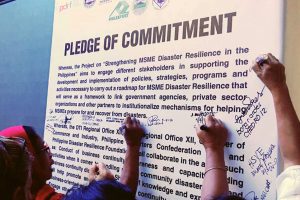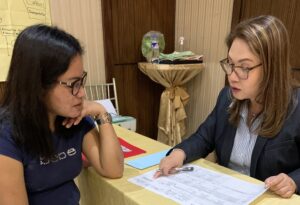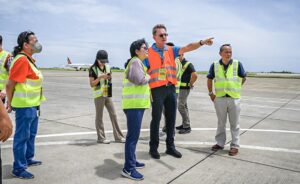Micro, small and medium enterprises (MSMEs) are advised to prepare for and recover from disasters to ensure continuous delivery of products and/or services.
“We needed to strengthen the preparedness of MSMEs, many of whom are part of the supply chain of larger corporations and our vendors, so if they fail, we fail in our philosophy so we need to also focus on MSMEs,” Guillermo Luz, chief resilience officer of the Philippine Disaster Resilience Foundation (PDRF), said in a webinar.
Luz said the PDRF has programs built around community resilience, disaster recovery, research and communication, and special projects amid several risks the country is facing.
He said it conducts training for resilience and provides advanced information for the business community.
“You need to have a lot of advanced information, data, (and) follow the news so that you can prepare and anticipate what’s gonna happen. So we do this for companies, in exchange they also band together to be able to help each other, and help the community and help the country,” Luz said.
“So just like the weather forecast, early warning is so important for all our businesses if we want to be prepared. And it is a necessary investment but we think that it’s going to pay its way because we can save a lot of lives, you save a lot of property lost,” he added.
The PDRF has digital tools to help small businesses prepare for disasters and build their resilience — the Disaster Risk and Disaster Preparedness Needs Assessment Tool and the Business Continuity Capability Assessment Tool.
These are practical checklists for MSME owners to help them determine their readiness for different kinds of disruptions and to measure the effectiveness of having a business continuity plan (BCP).
Luz said the Foundation’s corporate members can avail themselves of the Hazard and Disaster Analysis for Business Resilience (Handa) app.
Handa serves as a unified platform that enables member companies to report, monitor and manage incidents and hazards, enabling them to assess and reduce their risk prior to potential disasters.
“Then, we engage in disaster recovery efforts whether its education, livelihood, environment, shelter, or water sanitation help. This is gonna be a post-disaster kind of activity…,” he added.
Luz said the PDRF has also provided a handbook so firms can follow a template to build their BCPs.
The MSME Guide to Disaster Resilience also includes sample toolkits and exercises which can help them develop their own emergency preparedness.
Article by Sunstar Cebu



